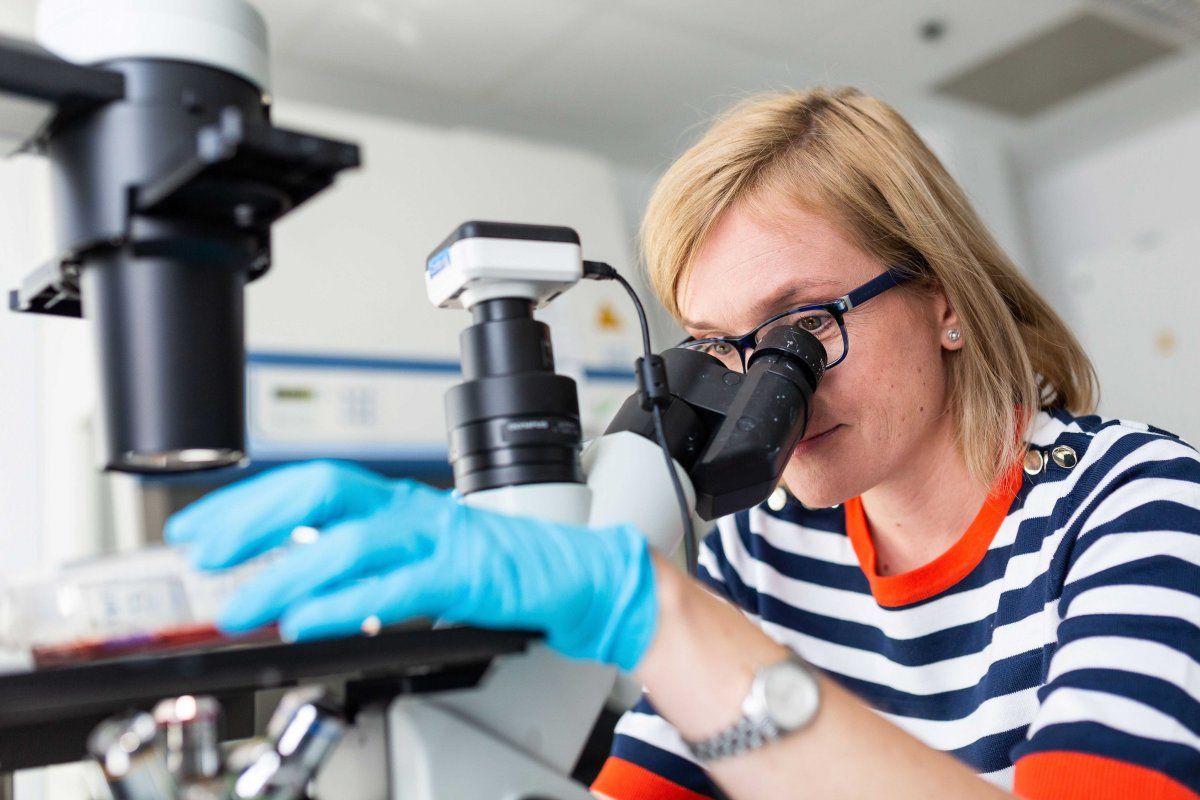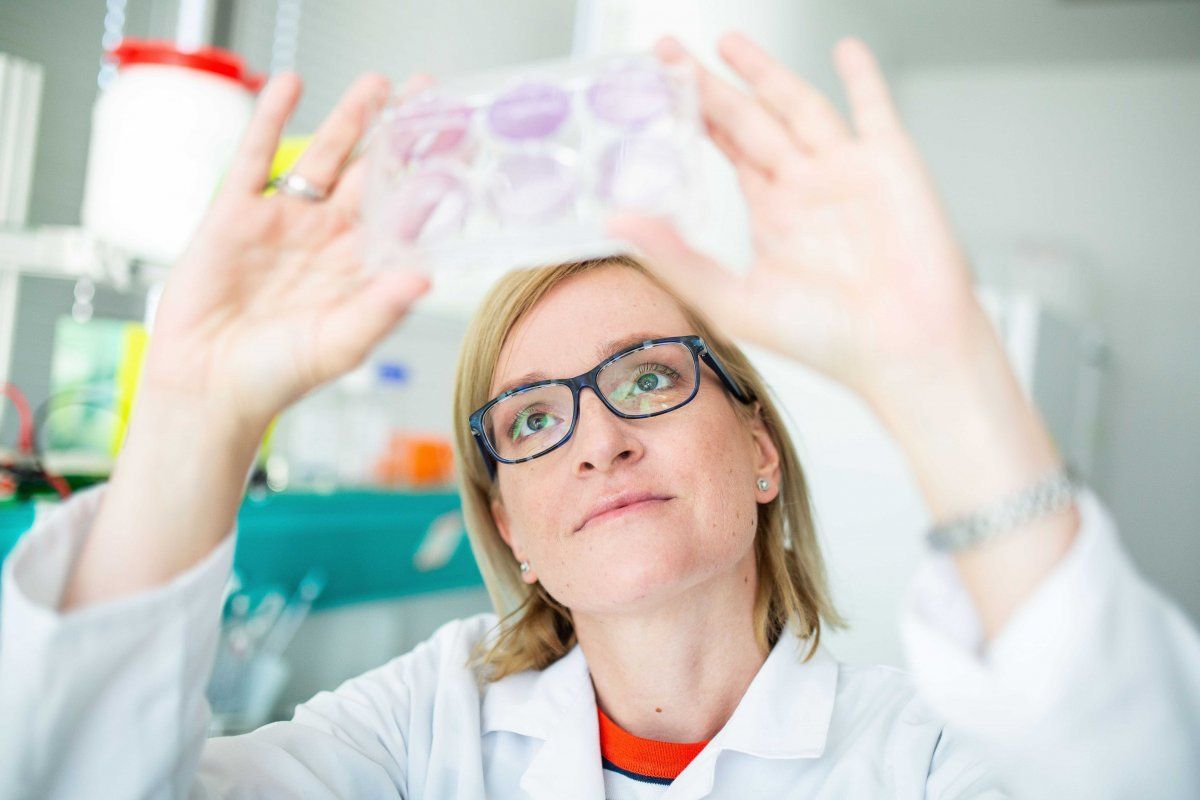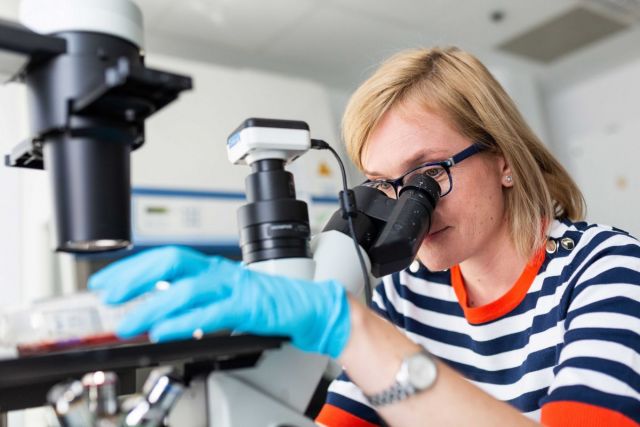Principal Investigator
:
Prof. Dr hab. n. med. Dominika Nowis
Medical University of Warsaw
Panel: ST8
Funding scheme
: OPUS 18
announced on
15 September 2019
 Photo by Michał Łepecki
Cancer patients frequently develop a state of chronic immune impairment, known as secondary immunodeficiency. The weakening of the immune system then increases their risk of infectious (mainly bacterial) diseases and often fatal complications. This state of immunodeficiency may be caused directly by the growth of the cancer or emerge as an adverse side effect of cancer treatment (such as chemo- and radiotherapy) or the presence of other chronic conditions.
Photo by Michał Łepecki
Cancer patients frequently develop a state of chronic immune impairment, known as secondary immunodeficiency. The weakening of the immune system then increases their risk of infectious (mainly bacterial) diseases and often fatal complications. This state of immunodeficiency may be caused directly by the growth of the cancer or emerge as an adverse side effect of cancer treatment (such as chemo- and radiotherapy) or the presence of other chronic conditions.
Recent research findings suggest that the expansion of erythroid progenitor cells (EPC) may be one of the main causes of immune impairment in individuals with advanced cancer. EPCs cannot be clinically eliminated from the patient’s body since, as the precursors of erythrocytes (red blood cells), they are also indispensable for the normal functioning of the body. Our preliminary study has shown that EPCs produce a certain enzyme that may be responsible for their inhibitory action on the immune system.
 Photo by Michał Łepecki
The main objective of the research project, therefore, is to investigate whether inhibiting the activity of the enzyme may reduce EPC-associated immune impairment and boost the immunity of cancer patients to bacterial infections, one of the main causes of premature mortality in this patient group. In our research, we will rely on a murine model of plasma cell myeloma (PCM), a type of cancer derived from end-differentiated B lymphocytes. Usually diagnosed in older patients, PCM leads to immune impairment and causes damage to multiple organs, including the kidneys, bones and the bone marrow. Despite the important progress in PCM treatment in recent years, the disease remains incurable, with a median survival time of 6 years from diagnosis. In addition, as our society ages, the incidence of plasma cell myeloma is on the rise. The results of our research project may help identify the molecular mechanisms behind immune disorders and set new treatment targets for cancer patients.
Photo by Michał Łepecki
The main objective of the research project, therefore, is to investigate whether inhibiting the activity of the enzyme may reduce EPC-associated immune impairment and boost the immunity of cancer patients to bacterial infections, one of the main causes of premature mortality in this patient group. In our research, we will rely on a murine model of plasma cell myeloma (PCM), a type of cancer derived from end-differentiated B lymphocytes. Usually diagnosed in older patients, PCM leads to immune impairment and causes damage to multiple organs, including the kidneys, bones and the bone marrow. Despite the important progress in PCM treatment in recent years, the disease remains incurable, with a median survival time of 6 years from diagnosis. In addition, as our society ages, the incidence of plasma cell myeloma is on the rise. The results of our research project may help identify the molecular mechanisms behind immune disorders and set new treatment targets for cancer patients.
Project title: Elucidating the role of erythroid progenitor cells (EPCs) in the development of antibacterial immune response in the course of neoplastic disease
Prof. Dr hab. n. med. Dominika Nowis
Dominika Nowis serves as the Head of the Laboratory of Experimental Medicine at the Medical University of Warsaw. She graduated from the Second Faculty of Medicine of the Medical University of Warsaw (2003), earned her PhD degree in 2005, her habilitation in 2011, and the title of professor in 2016. Research fellowships: Dana-Farber Cancer Institute (USA), Oxford University (UK), University College Dublin, Indiana University School of Medicine (USA), and University of Verona. She has authored more than eighty scientific publications (PLoS Medicine, Nature Comms, JCI Insight, Haematologica, Am J Pathol, Blood, Oncogene, Cancer Res). Number of citations: more than 4000, H-index-26.


